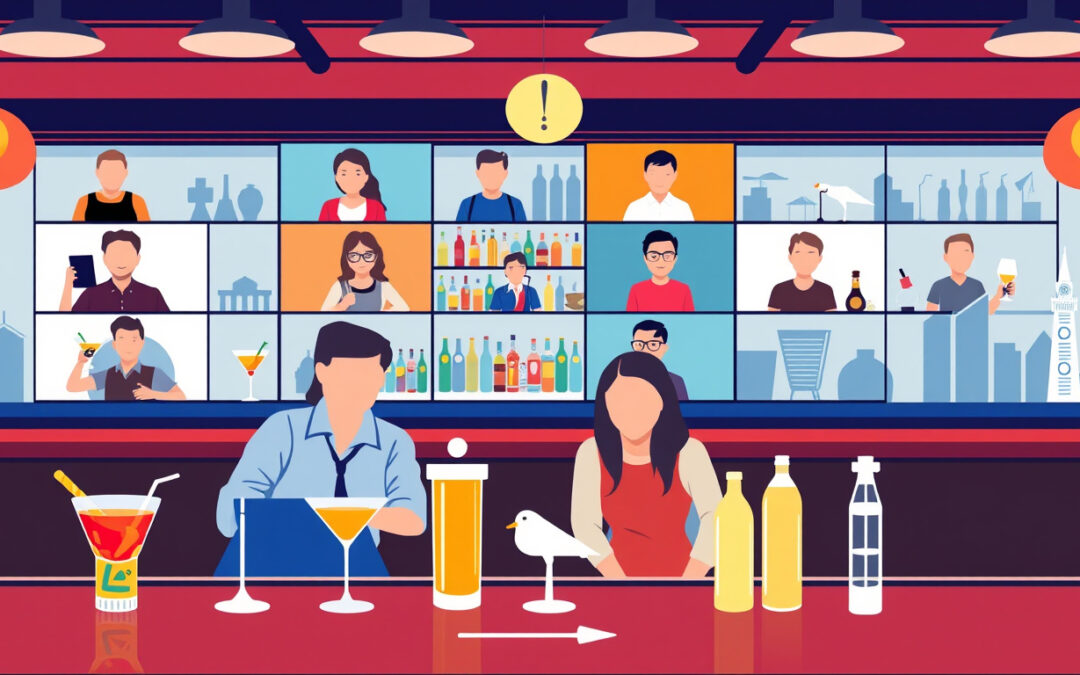
BLOG
In recent years, the demand for alcohol server training in Louisiana has seen a significant increase, primarily due to the growing need for responsible alcohol service in restaurants, bars, and other establishments. As a response to this demand, online alcohol server training has emerged as a practical solution for many individuals and businesses in the state. In this article, we will explore the advantages of online alcohol server training in Louisiana, highlighting its benefits in terms of regulatory compliance, cost-effectiveness, flexibility, and the overall learning experience. Whether you’re an aspiring bartender or a restaurant owner, understanding these advantages can help you make informed decisions about your training options.
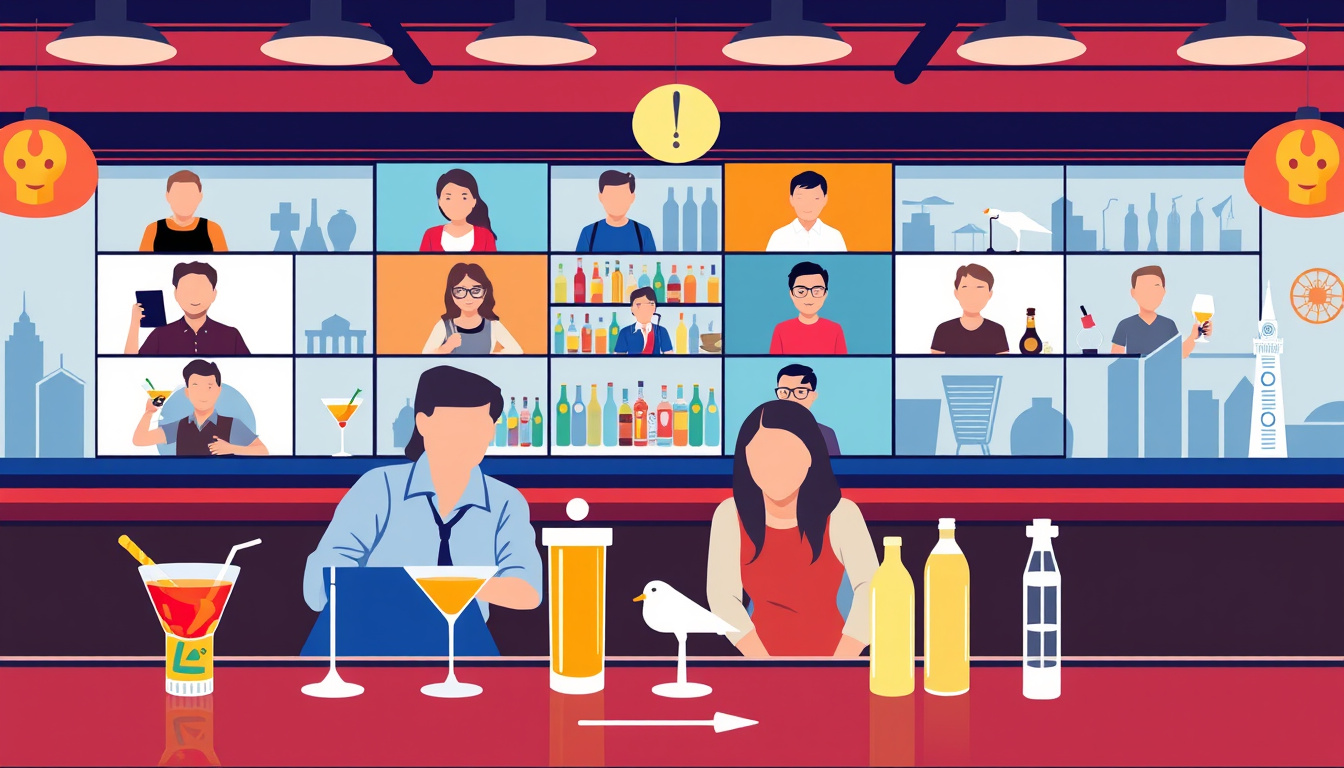
Key Takeaways
- Online alcohol server training in Louisiana ensures regulatory compliance and certification.
- It offers a cost-effective alternative compared to traditional training methods.
- Trainees benefit from the flexibility and convenience of online training schedules.
- Interactive modules enhance the learning experience, making content more engaging.
- The future of alcohol server training in Louisiana lies in its increased accessibility and modernization.
Introduction to Online Alcohol Server Training
In Louisiana, the demand for responsible alcohol service is ever-increasing, making online alcohol server training a vital resource for aspiring bartenders and servers. The advantages of online alcohol server training in Louisiana are manifold, catering to both new entrants in the hospitality industry and seasoned professionals looking to refresh their skills. Firstly, the flexibility of online training allows individuals to study at their own pace and on their own schedule, making it easier to balance learning with work and personal commitments. Additionally, the online format often utilizes engaging multimedia content that enhances retention and understanding of crucial concepts such as responsible service practices, identification checks, and the laws surrounding alcohol consumption. Furthermore, many online programs are accredited and fulfill state requirements, which can expedite the certification process while ensuring that participants are well-prepared to promote safe drinking practices in their establishments. Ultimately, embracing online alcohol server training can not only enhance individual knowledge and compliance but also contribute to creating a safer and more responsible drinking culture across Louisiana.
Regulatory Compliance and Certification
In Louisiana, the advantages of online alcohol server training cannot be overstated, especially when it comes to ensuring regulatory compliance and certification. With the state’s stringent laws governing the sale and consumption of alcohol, it is crucial for servers and sellers to be well-versed in these regulations. Online training programs provide flexibility and convenience, allowing participants to learn at their own pace while covering essential topics such as responsible alcohol service, identification checks, and the consequences of non-compliance. Furthermore, upon completion, servers earn certifications that fulfill state requirements, enhancing their employment prospects and ensuring that establishments adhere to legal standards. Ultimately, this convenient mode of training not only equips individuals with the knowledge needed to serve alcohol safely but also helps businesses protect themselves against potential legal issues. By investing in online alcohol server training, both individuals and establishments can thrive in Louisiana’s competitive hospitality landscape.
‘Education is the most powerful weapon which you can use to change the world.’ – Nelson Mandela

Cost-Effectiveness of Online Training
When considering the advantages of online alcohol server training in Louisiana, cost-effectiveness becomes a standout benefit for establishments aiming to comply with state regulations without breaking the bank. Traditional in-person training sessions can lead to high expenses including instructor fees, venue costs, and travel expenses for participants. In contrast, online training platforms offer a more budget-friendly alternative, encompassing self-paced learning modules that can be accessed from anywhere at any time. This flexibility saves businesses time and money while ensuring that all staff members receive the necessary certification to serve alcohol responsibly. Moreover, many online training programs provide bulk pricing options, allowing establishments to train multiple employees efficiently, thereby maximizing their investment and minimizing downtime. By choosing online alcohol server training in Louisiana, businesses can prioritize their budget while still ensuring they meet compliance standards and foster a safe drinking environment.
Flexibility and Convenience for Trainees
One of the significant advantages of online alcohol server training in Louisiana is the remarkable flexibility and convenience it offers trainees. Unlike traditional classroom settings, where time and location can be a barrier, online training allows individuals to complete their certification at their own pace and on their own schedule. This is particularly beneficial for busy professionals or students who may have other commitments such as jobs or classes. With just a computer or smartphone and an internet connection, trainees can access their courses anytime and anywhere, making it easier to balance their personal and professional lives. Moreover, the interactive nature of online training often enhances engagement, as participants can review materials as needed and revisit challenging sections, ensuring a thorough understanding of the responsible serving of alcohol. This adaptability not only saves time but also creates a more customized learning experience, ultimately leading to better training outcomes.

Enhanced Learning Experience with Interactive Modules
In Louisiana, the advantages of online alcohol server training have become increasingly evident, particularly with the introduction of interactive modules designed to enhance the learning experience. These engaging components not only make it easier for server trainees to grasp essential alcohol service regulations and responsible serving practices, but they also promote retention through interactive quizzes, scenarios, and real-life applications. By using gamified elements, users can enjoy a more dynamic approach to their training, keeping them motivated and invested in their learning journey. With the flexibility that comes with online training, servers can complete their courses at their own pace, fitting their education around personal and work commitments without sacrificing quality. This modern approach addresses the varied learning styles of individuals, ensuring that everyone walks away with the knowledge they need to provide excellent service while adhering to state laws. Ultimately, the advantages of online alcohol server training in Louisiana offer a win-win situation for both employees and establishments, fostering a safer, more responsible drinking environment.
Conclusion: The Future of Alcohol Server Training in Louisiana
In conclusion, the future of alcohol server training in Louisiana looks promising, particularly with the continued rise of online education platforms. The advantages of online alcohol server training in Louisiana are numerous, as they provide flexibility, convenience, and accessibility for those seeking to familiarize themselves with responsible alcohol service. By allowing servers to complete their training at their own pace and on their own schedule, online programs eliminate the challenges of commuting and rigid class times. Furthermore, enhanced interactivity and up-to-date resources make it easier for participants to grasp essential concepts related to alcohol laws, identification checking, and responsible service practices. This shift towards digital learning not only benefits servers but also supports local businesses by ensuring that employees are well-trained and compliant with state regulations, ultimately leading to safer service environments and reduced liability.
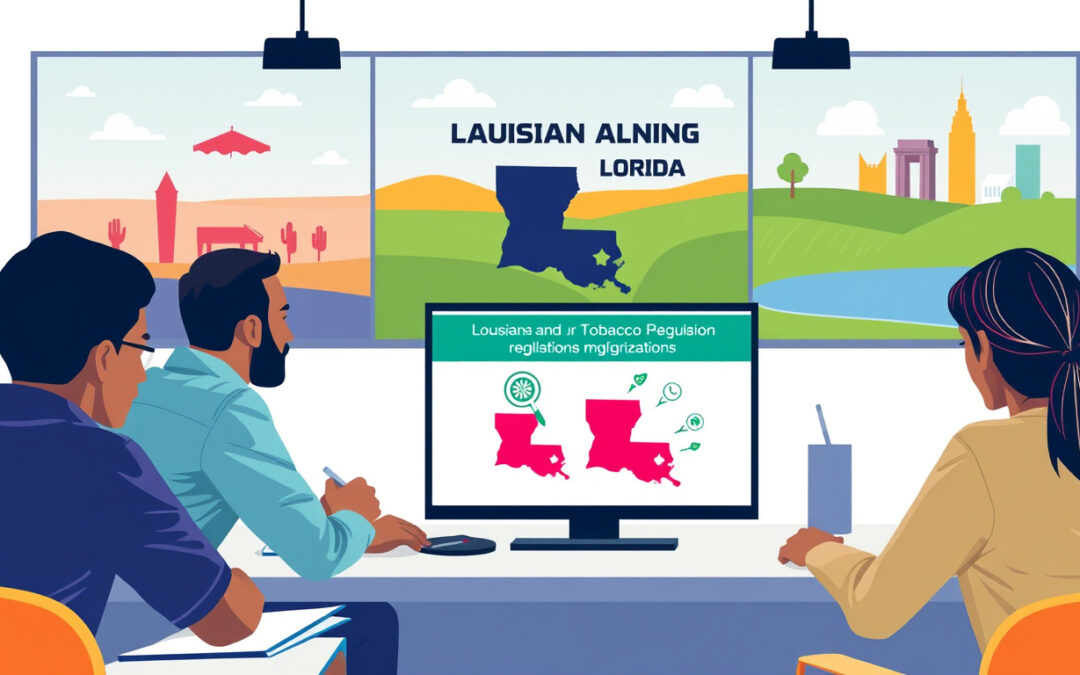
BLOG
If you’re a professional seeking to work in the hospitality industry or simply looking to enhance your skills in alcohol training, taking a Louisiana ATC Bar Card Course online could be your ticket to unlocking new career opportunities. With the rise of online education, more individuals are opting for digital learning environments that not only fit into their busy schedules but also provide comprehensive training relevant to state regulations. In this article, we will explore the top 5 reasons to take a Louisiana ATC Bar Card Course online, ensuring you understand the immense value this training offers.
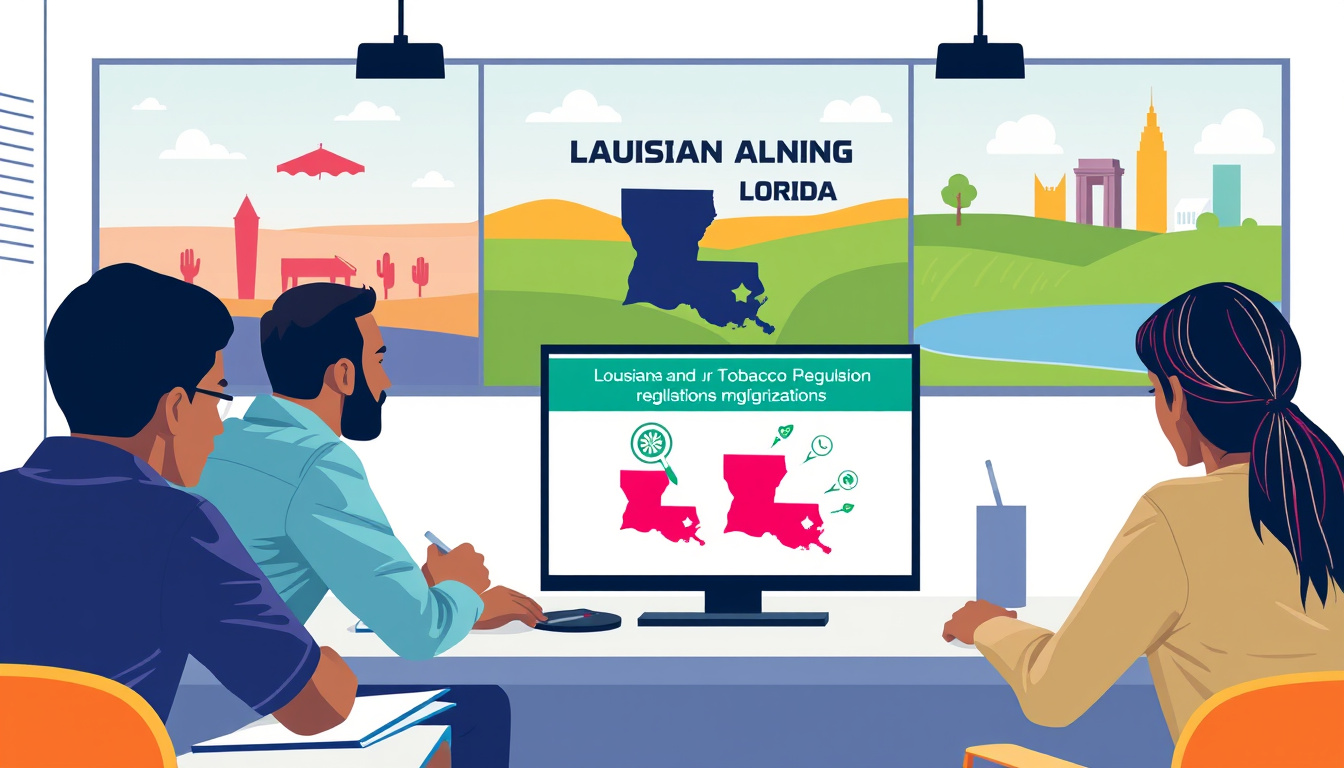
Key Takeaways
- The Louisiana ATC Bar Card Course offers the ease of learning from home.
- Online courses provide flexible scheduling to accommodate busy lifestyles.
- Enrolling in an online ATC course can save money on travel and materials.
- Participants benefit from a thorough and well-structured curriculum.
- The online course format enhances networking and career advancement opportunities.
Introduction to Louisiana ATC Bar Card Course
The Louisiana ATC Bar Card Course has gained popularity among those seeking to enhance their knowledge and expertise in the alcohol and beverage control industry. With the rise of online learning, many individuals are considering this convenient option to fulfill their educational requirements. Here are the top 5 reasons to take a Louisiana ATC Bar Card course online: first, the flexibility of online classes allows you to learn at your own pace, fitting into your schedule without the constraints of traditional classroom settings. Second, the interactive and engaging format often provided in online courses ensures that you remain involved and retain information better. Third, taking the course online can be more cost-effective, as it eliminates travel expenses and may offer cheaper tuition compared to in-person sessions. Fourth, online courses often provide immediate access to course materials and resources that can enhance your learning experience. Finally, obtaining your bar card online ensures that you quickly and efficiently meet the state requirements, allowing you to start working in bars, restaurants, or any establishment that serves alcohol without unnecessary delays.
Convenience and Flexibility of Online Learning
The convenience and flexibility of online learning have transformed the landscape of education, making it easier than ever for professionals to enhance their skills and credentials. This is especially true for individuals seeking to obtain their Louisiana ATC Bar Card. Here are the top 5 reasons to take a Louisiana ATC Bar Card course online. First, online courses allow you to learn at your own pace, offering the flexibility to complete modules at times that work best for your schedule. Secondly, these courses often feature updated materials and resources that reflect the latest regulations and industry standards, ensuring you receive the most current education available. Thirdly, online learning eliminates geographical barriers, allowing students from all over Louisiana to access top-notch instruction without needing to commute. Additionally, many online platforms provide interactive tools and resources, such as forums and multimedia presentations, which can enrich your learning experience. Finally, obtaining your Louisiana ATC Bar Card online is often more cost-effective, saving you both time and money. Embrace the advantages of online education by choosing a Louisiana ATC Bar Card course that fits seamlessly into your lifestyle.
‘Education is the most powerful weapon which you can use to change the world.’ – Nelson Mandela

Cost-Effectiveness and Accessibility
In today’s fast-paced world, the demand for accessible and cost-effective training solutions continues to rise, especially in the professional landscape of Louisiana’s Alcohol and Tobacco Control (ATC) sector. The top 5 reasons to take a Louisiana ATC Bar Card course online reveal significant benefits that can enhance your career while ensuring compliance with state regulations. Firstly, the cost-effectiveness of online courses cannot be overlooked; they often come at a fraction of the price of traditional classroom training, eliminating travel expenses and related costs. Secondly, online courses provide unparalleled accessibility, allowing you to study at your own pace and convenience, which is especially beneficial for those balancing work and personal responsibilities. Lastly, the flexibility of online learning enables you to revisit course materials as needed, ensuring thorough comprehension of crucial content. By opting for an online Louisiana ATC Bar Card course, you not only save time and money but also empower yourself with the knowledge required to navigate the intricacies of the state’s alcohol and tobacco regulations effectively.
Comprehensive Curriculum and Resources
When considering the top 5 reasons to take a Louisiana ATC Bar Card Course online, the comprehensiveness of the curriculum and the abundance of resources offered stand out prominently. Online courses are meticulously designed to cover all essential aspects of responsible alcohol service and management, ensuring that you have a thorough understanding of Louisiana’s laws and regulations. With interactive modules, video lectures, and accessible study materials, learners can engage with the content in a flexible manner that suits their schedule. This comprehensive educational experience not only equips you with the necessary skills but also emphasizes real-world scenarios, which can be invaluable in preparing for the practicalities of working in the alcohol industry. The convenience of online resources, such as quizzes and supplementary reading materials, further enhances the learning process, making it easier than ever to obtain your ATC Bar Card while acquiring knowledge that is crucial for professional success.

Networking and Professional Opportunities
When it comes to enhancing your career in the hospitality industry, pursuing the Louisiana ATC Bar Card course online is a decision that can significantly expand your professional horizons. Here are the top 5 reasons to take a Louisiana ATC Bar Card course online: 1) Convenience: Online courses offer flexible scheduling, allowing you to complete the training at your own pace without disrupting your current job or personal commitments. 2) Cost-Effective: Compared to traditional in-person classes, online courses can save you money on travel and accommodation while providing the same quality education. 3) Access to Resources: Online platforms often provide a wealth of resources, including webinars and discussion forums, that can enhance your understanding of alcohol service laws and regulations in Louisiana. 4) Networking Opportunities: Completing the course online also allows you to connect with fellow students, instructors, and industry professionals through digital networks, potentially opening doors for future job opportunities in bars, restaurants, or event venues. 5) Up-to-date Information: The online course structure ensures that you receive the most current information and updates regarding state laws and regulations affecting the alcohol service industry, preparing you effectively for your role. By taking the Louisiana ATC Bar Card course online, you’re positioning yourself for success while enjoying the flexibility and resources that come with a digital learning environment.
Conclusion: The Future of ATC Training Online
In conclusion, the future of ATC training online, particularly the Louisiana ATC Bar Card Course, is bright due to numerous advantages. The top 5 reasons to take a Louisiana ATC Bar Card Course online include the convenience of flexible scheduling, access to a wide range of interactive materials, personalized pacing to match individual learning speeds, reduced costs compared to traditional classes, and the ability to study from anywhere, eliminating travel expenses. These benefits not only facilitate a more engaging learning experience but also equip aspiring professionals in the athletic training field with the necessary skills and knowledge in an efficient manner. As technology continues to evolve, embracing online education in ATC training will undoubtedly pave the way for a more skilled and accessible workforce.

BLOG
If you’re considering starting a business that involves serving or selling alcoholic beverages in Louisiana, one of the first questions that may arise is, ‘How long does a liquor license last in Louisiana?’ Understanding the duration, types, and renewal processes of liquor licenses in this state is crucial for compliance with local laws and ensuring your business operates smoothly. In this article, we will provide a comprehensive overview of liquor licenses in Louisiana, including their types, how long they last, the renewal process, factors that affect their validity, and the consequences of operating with an expired license.

Key Takeaways
- Liquor licenses in Louisiana vary by type and purpose, affecting their duration.
- Typically, a liquor license in Louisiana is valid for one year from the date of issuance.
- License renewal in Louisiana requires timely application and adherence to state regulations.
- Factors such as compliance with local laws and tax obligations can affect the validity of a liquor license.
- Operating with an expired liquor license can lead to legal penalties and business shutdowns.
Overview of Liquor Licenses in Louisiana
When navigating the landscape of liquor licenses in Louisiana, it’s essential to understand how long does a liquor license last in Louisiana. Typically, a liquor license in this state is valid for one full year, meaning that it will need to be renewed annually. The renewal process involves submitting an application to the Louisiana Office of Alcohol and Tobacco Control (ATC), along with any necessary fees and supporting documentation. Businesses must also ensure compliance with state regulations throughout the licensing period. Variations may exist depending on the specific type of license—such as retail, wholesale, or special event licenses—and any changes in ownership or location can impact the license duration. Therefore, it’s crucial for business owners to stay informed and proactive in managing their liquor licensing to avoid potential interruptions in service.
Types of Liquor Licenses Available
When exploring the types of liquor licenses available in Louisiana, one common question arises: ‘How long does a liquor license last in Louisiana?’ Understanding the duration of these licenses is crucial for anyone looking to enter the beverage industry in the state. In Louisiana, liquor licenses typically last one year, although they can be renewed annually. The specifics can vary based on the type of establishment, such as whether it’s a bar, restaurant, or retail store. For instance, a retail dealer’s permit may require different renewal procedures compared to a manufacturer’s license. It’s essential for business owners to stay informed not only about the duration of their license but also about compliance with state regulations to avoid lapses that can lead to fines or disruptions in service. Overall, securing the right liquor license and understanding its longevity is vital for operational success in Louisiana’s vibrant hospitality sector.
‘Good liquor is like good music, it gets better with time and an understanding of its substance.’ – Anonymous
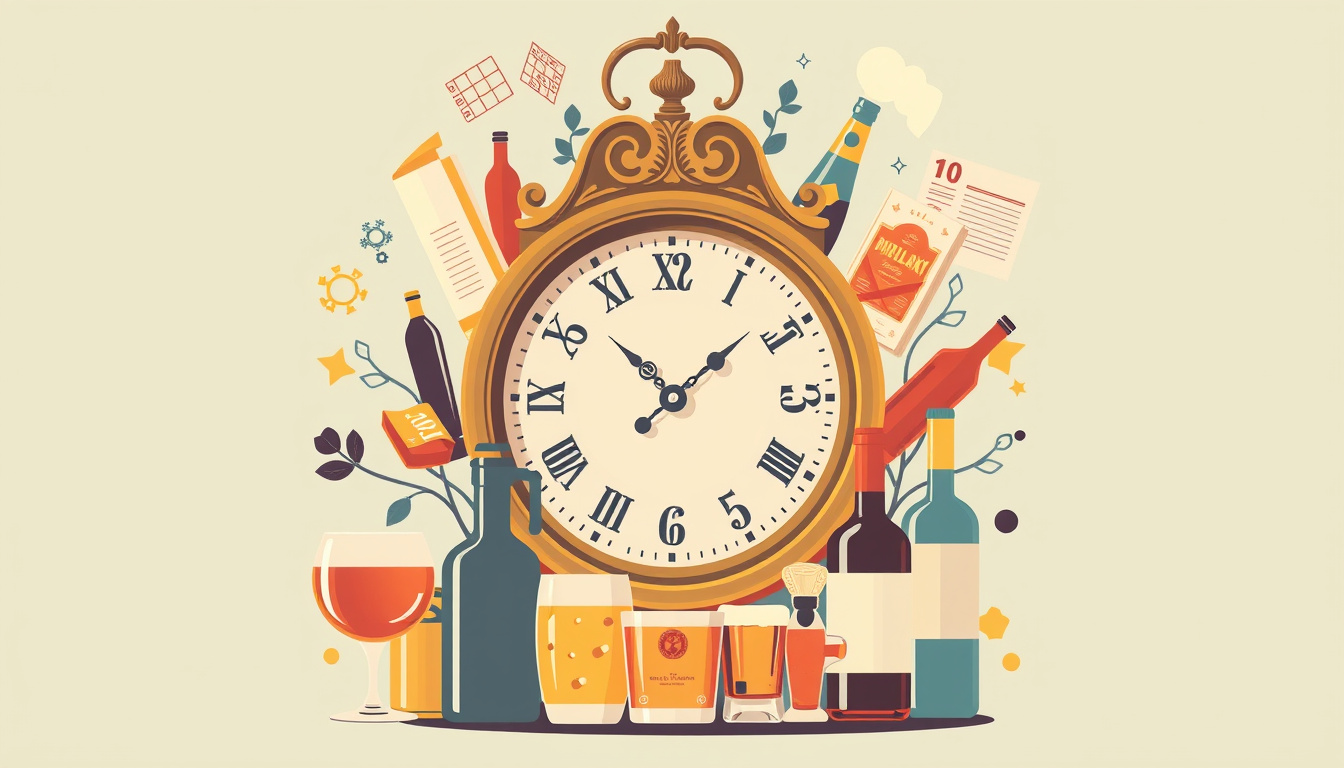
Duration of Liquor Licenses
When considering the specifics of operating a business that serves alcohol in Louisiana, one critical question often arises: ‘How long does a liquor license last in Louisiana?’ In this state, the duration of a liquor license can vary depending on the type of license obtained. Generally, the standard liquor license in Louisiana is valid for one year from the issuance date. However, it is essential for business owners to be aware of renewal deadlines and requirements, as failure to renew on time can result in hefty fines or the inability to serve alcohol altogether. Additionally, some special permits or event licenses may have shorter durations, emphasizing the need for thorough understanding and compliance with local regulations. Thus, for anyone looking to navigate the intricate world of liquor licenses in Louisiana, knowing the lifespan of these licenses and planning for renewals well in advance is paramount for operational longevity and success.
Renewal Process for Liquor Licenses
In Louisiana, the renewal process for liquor licenses is an essential consideration for business owners in the food and beverage industry. One of the most common questions is: How long does a liquor license last in Louisiana? Typically, a liquor license in Louisiana is valid for one year from the date of issuance. This means that business owners need to keep track of their license expiration dates to avoid interruptions in their ability to serve alcoholic beverages. The renewal process requires the submission of an application along with any renewal fees, and it’s wise to begin this process well in advance to ensure compliance with state regulations. Additionally, it’s important for license holders to address any outstanding issues, such as fines or violations, to facilitate a smooth renewal. Understanding how long a liquor license lasts in Louisiana and the steps involved in renewal can help businesses maintain their operations without legal hitches.
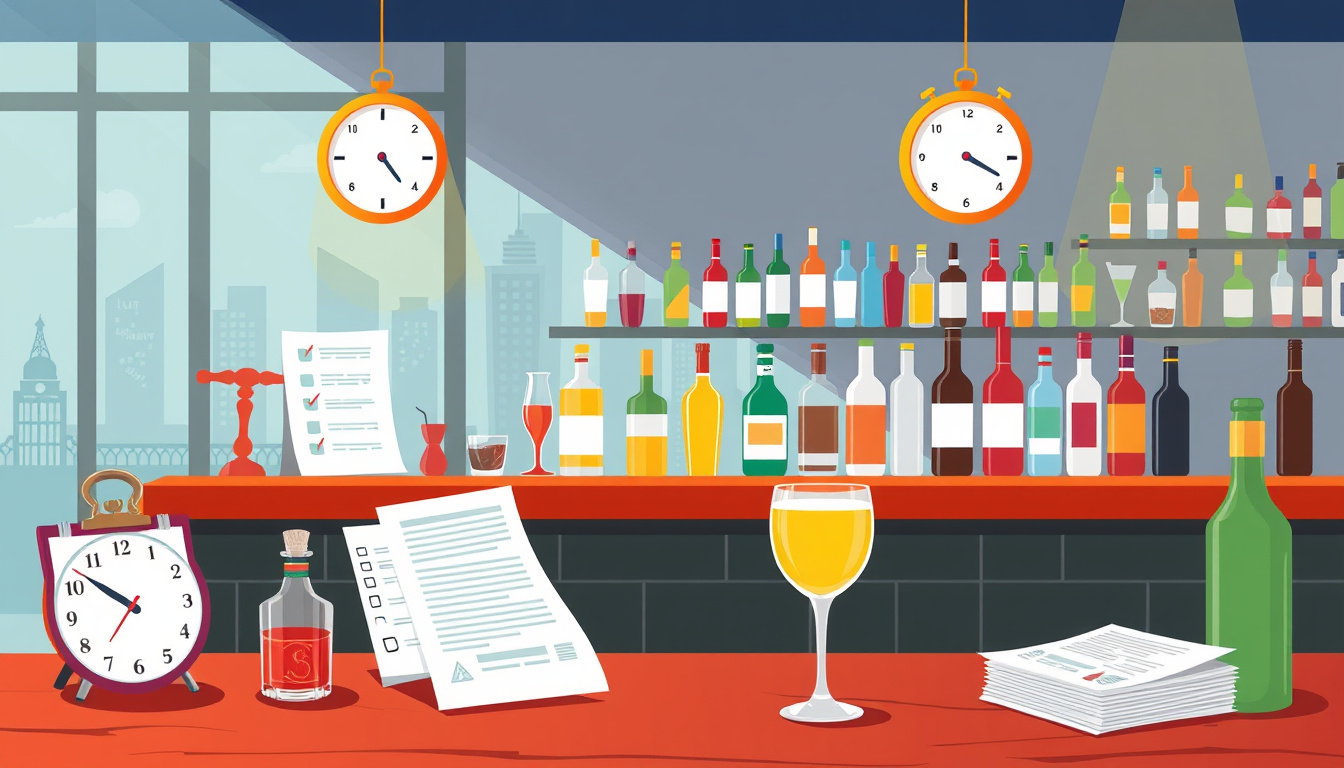
Factors Affecting Liquor License Validity
When navigating the complexities of alcohol regulations, one common question arises: how long does a liquor license last in Louisiana? The duration of a liquor license in this state typically depends on various factors, including the type of license issued, the specific regulations of the local jurisdiction, and compliance with state laws. In Louisiana, most liquor licenses are valid for one year from the time of issuance. However, it’s essential to remain aware of any operational requirements set forth by the Louisiana Office of Alcohol and Tobacco Control (ATC) and local governing bodies, as non-compliance can lead to suspension or revocation. Additionally, licenses may be subject to renewal processes that require applicants to meet specific criteria, such as maintaining a clean record, paying renewal fees, and demonstrating adherence to local zoning laws. By understanding these critical factors, business owners can ensure their establishments maintain valid liquor licenses, allowing them to operate smoothly within the law.
Consequences of Expired Liquor Licenses
When exploring the consequences of expired liquor licenses, one prevalent question arises: How long does a liquor license last in Louisiana? In this state, most liquor licenses are valid for one year, with the expiration date typically set for June 30th. Failure to renew your liquor license before this deadline can lead to severe repercussions for your business. Operating without a valid license can result in hefty fines, legal action, and ultimately the cessation of alcohol sales, which can severely impact your establishment’s revenue and reputation. Moreover, repeatedly letting your liquor license expire can hinder your chances of obtaining future licenses, as authorities might view it as a sign of irresponsibility. Thus, it is critical for business owners to understand the renewal deadlines and maintain compliance with Louisiana’s liquor laws to avoid these negative outcomes.

BLOG
In today’s competitive marketplace, businesses are increasingly recognizing the importance of ethical practices and consumer trust. One of the most effective ways to demonstrate commitment to responsibility is through the Responsible Vendor Certification process. This certification not only signifies a vendor’s dedication to compliance with social and environmental standards but also enhances their reputation among consumers and peers alike. In this article, we will explore the responsible vendor certification process and benefits, providing insights into the steps involved, key requirements, and the tangible advantages that come with being a certified vendor.

Key Takeaways
- Responsible Vendor Certification enhances accountability and promotes ethical business practices.
- The certification process involves specific steps that vendors must follow to ensure compliance.
- Key requirements include training, adherence to regulations, and proof of responsible operations.
- Certified vendors enjoy benefits such as improved consumer trust and enhanced business reputation.
- The future of business practices is leaning towards more responsible vendor certifications to meet consumer expectations.
Introduction to Responsible Vendor Certification
The Responsible Vendor Certification process is essential for businesses in the alcohol and beverage industry, ensuring they operate in compliance with laws and regulations while promoting a culture of responsible drinking. This certification not only helps vendors demonstrate their commitment to preventing alcohol misuse but also equips employees with the knowledge and training needed to handle situations involving intoxication and age verification effectively. The benefits of obtaining Responsible Vendor Certification are manifold; it can enhance a business’s reputation, reduce liability risks, and potentially lead to lower insurance premiums. Moreover, by fostering a safe drinking environment, certified vendors often encourage customer loyalty and attract conscientious consumers, establishing themselves as trusted establishments in their communities.
The Certification Process: Steps Involved
The Responsible Vendor Certification process is a comprehensive approach designed to ensure businesses adhere to responsible practices, particularly in the hospitality and retail sectors. This process begins with an assessment of current practices, where businesses evaluate their policies concerning the sale and service of age-restricted products, such as alcohol and tobacco. Next, companies must implement specific training programs for staff, highlighting the importance of compliance with relevant laws and regulations. After these initial steps, businesses typically undergo an audit, where third-party evaluators verify adherence to the established standards. Upon successful completion of the audit, the business earns certification, which not only enhances its reputation but also provides substantial benefits, such as reduced liability risks, improved customer trust, and heightened employee accountability. Ultimately, the Responsible Vendor Certification process empowers establishments to uphold ethical practices while generating significant operational advantages.
‘The best way to find yourself is to lose yourself in the service of others.’ – Mahatma Gandhi
 vendors must demonstrate a commitment to responsible practices, which involves adopting rigorous standards in areas such as product safety, ethical sourcing, and environmental sustainability. This typically requires vendors to provide detailed documentation of their operations, engage in training programs for their staff, and sometimes undergo third-party audits to verify adherence to industry standards. The benefits of obtaining Responsible Vendor Certification extend beyond mere compliance; certified vendors often enjoy enhanced consumer trust, increased brand loyalty, and potential market advantages over non-certified competitors. Furthermore, being recognized as a responsible vendor can lead to new partnership opportunities with businesses that prioritize ethical sourcing in their supply chains, thereby driving overall growth and profitability.
vendors must demonstrate a commitment to responsible practices, which involves adopting rigorous standards in areas such as product safety, ethical sourcing, and environmental sustainability. This typically requires vendors to provide detailed documentation of their operations, engage in training programs for their staff, and sometimes undergo third-party audits to verify adherence to industry standards. The benefits of obtaining Responsible Vendor Certification extend beyond mere compliance; certified vendors often enjoy enhanced consumer trust, increased brand loyalty, and potential market advantages over non-certified competitors. Furthermore, being recognized as a responsible vendor can lead to new partnership opportunities with businesses that prioritize ethical sourcing in their supply chains, thereby driving overall growth and profitability.
Benefits of Being a Certified Responsible Vendor
Obtaining a Responsible Vendor Certification is an essential step for businesses in the alcohol and retail industries that wish to demonstrate their commitment to responsible practices. The Responsible Vendor Certification process encompasses various training programs that educate employees about best practices in alcohol sales and service, helping them to understand the legal responsibilities and the importance of preventing underage drinking and over-consumption. One of the key benefits of this certification is the potential for reduced liability in the event of incidents involving alcohol. Certified vendors are often viewed more favorably by regulatory authorities and may enjoy lower insurance premiums. Moreover, being a certified responsible vendor enhances a business’s reputation and credibility, attracting a wider customer base that values safety and responsibility. Overall, the Responsible Vendor Certification process not only supports legal compliance but also fosters a healthier community environment.
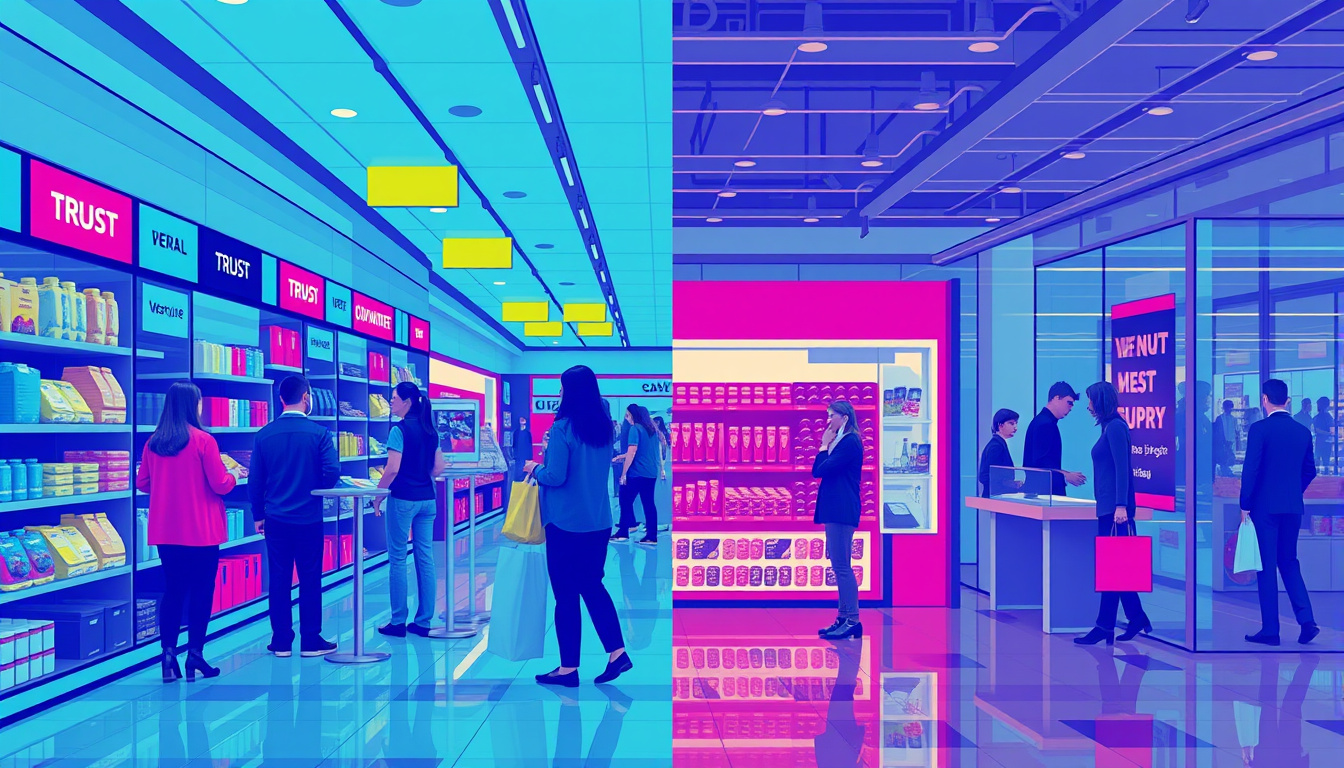
Impact on Consumer Trust and Business Reputation
In today’s marketplace, the impact of a Responsible Vendor Certification process on consumer trust and business reputation cannot be overstated. Businesses that undergo this rigorous certification demonstrate a commitment to ethical practices, environmental stewardship, and high-quality standards. By openly sharing their certification status, these companies not only enhance their credibility among consumers but also differentiate themselves from competitors. This process builds confidence; customers are more likely to engage with brands that prioritize responsible practices. Moreover, as consumers increasingly seek transparency, a strong reputation fostered by certification can lead to improved customer loyalty and retention. In essence, the Responsible Vendor Certification process serves as a powerful tool for businesses aiming to strengthen their market position while cultivating trust in their brand.
Conclusion: The Future of Responsible Vendor Practices
In conclusion, the Responsible Vendor Certification process is more than just a regulatory checkbox; it represents a commitment to ethical practices that can significantly benefit businesses, consumers, and the community. The rigorous standards for certification ensure that vendors not only adhere to industry norms but also implement practices that promote safety, reliability, and sustainability. Benefits include enhanced consumer trust, improved brand reputation, and potentially increased sales, as customers are increasingly favoring companies that prioritize responsibility. As market dynamics shift towards greater accountability, investing in the Responsible Vendor Certification process can position businesses favorably for the future, ultimately fostering a culture of responsibility that benefits everyone involved.
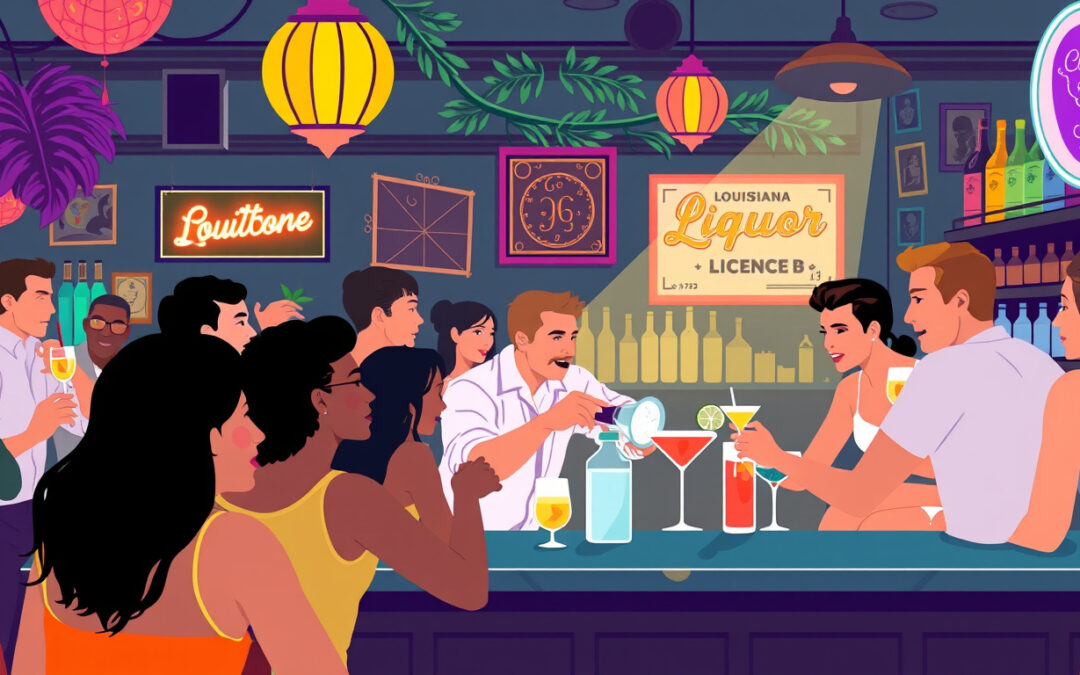
BLOG
When navigating the complex world of alcohol licensing in Louisiana, many business owners find themselves asking, ‘What is a Class B liquor license in Louisiana?’ This question is crucial for anyone looking to serve alcoholic beverages in a manner compliant with state regulations. In this article, we’ll delve into the definition of a Class B liquor license, explore the eligibility requirements, outline the types of establishments that typically need this license, and guide you through the application process. Additionally, we will highlight the key regulations, restrictions, and renewal obligations that accompany holding a Class B license.
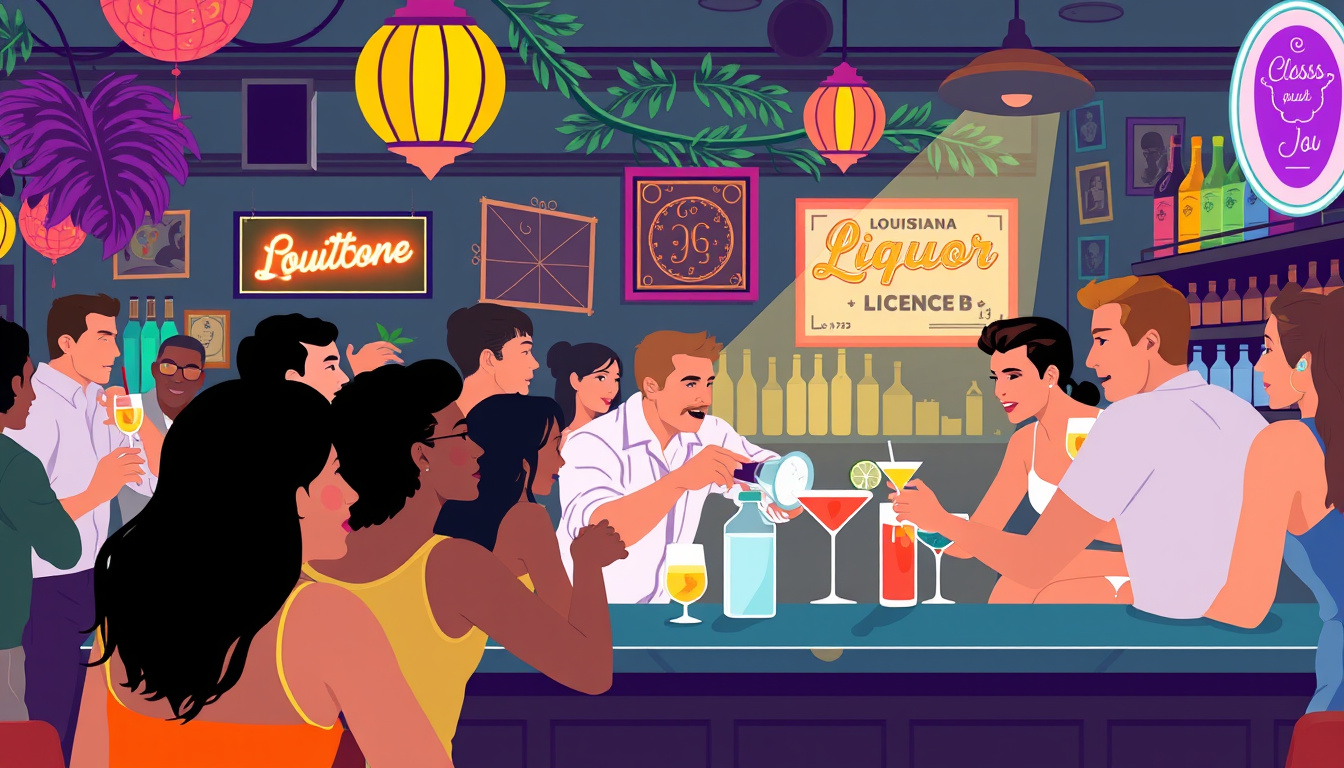
Key Takeaways
- A Class B liquor license in Louisiana allows establishments to sell alcoholic beverages for on-premises consumption.
- Eligibility for a Class B license requires meeting specific local, state, and federal regulations.
- Bars, restaurants, and clubs are examples of establishments that typically need a Class B liquor license.
- The application process involves submitting forms, paying fees, and passing background checks.
- License holders must comply with strict regulations and renew their license periodically to maintain legality.
Definition of Class B Liquor License
A Class B liquor license in Louisiana is a specific type of permit that allows businesses to sell alcoholic beverages for consumption on their premises. This license is primarily targeted at establishments such as bars, restaurants, and clubs that serve alcoholic drinks to customers while they enjoy meals or entertainment. Under Louisiana law, obtaining a Class B liquor license requires meeting certain criteria, including the establishment’s location, adherence to local zoning regulations, and the completion of a thorough application process. Understanding what a Class B liquor license in Louisiana entails is crucial for business owners looking to operate legally in the state’s vibrant nightlife and dining scene.
Eligibility Requirements for Obtaining a Class B License
When exploring the nuances of the Louisiana liquor licensing system, one key inquiry often arises: ‘What is a Class B liquor license in Louisiana?’ This license is specifically designated for establishments that wish to sell alcoholic beverages for on-premises consumption, such as bars, restaurants, and taverns. To qualify for a Class B license, applicants must meet several eligibility requirements set forth by the Louisiana Office of Alcohol and Tobacco Control. Firstly, the applicant must be at least 21 years old and possess a valid government-issued identification. Additionally, the establishment must comply with local zoning laws and health regulations. Applicants must also demonstrate responsible financial practices, including a clean record about tax obligations. A thorough background check is usually conducted, ensuring that any previous violations of liquor laws are taken into account. Understanding these eligibility requirements is essential for anyone interested in securing a Class B liquor license in Louisiana, as it sets the groundwork for successfully navigating the application process.
‘Laws are like cobwebs, which may catch small flies, but let wasps and hornets break through.’ – Jonathan Swift
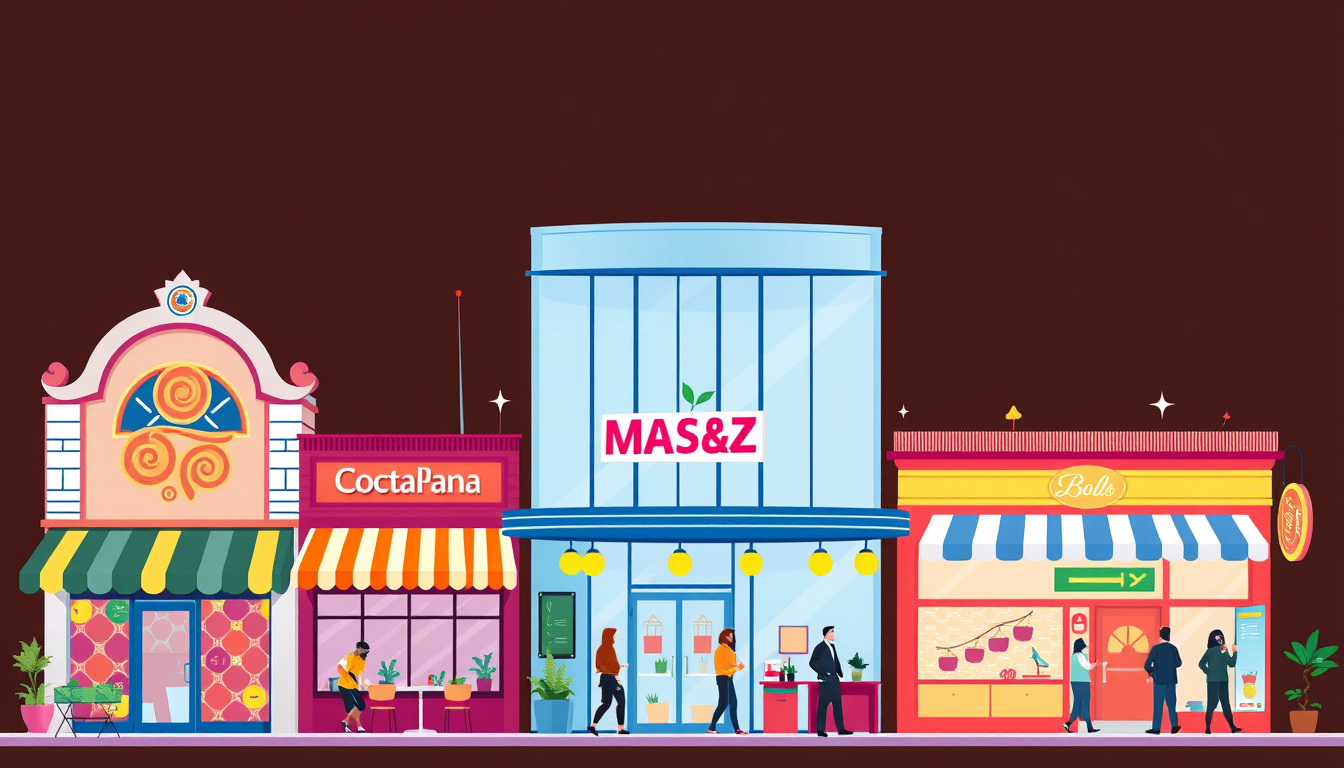
Types of Establishments That Require a Class B License
Understanding what is a Class B liquor license in Louisiana is essential for anyone looking to establish or operate a business that serves alcoholic beverages. This specific license is designed for establishments that primarily focus on serving alcohol to the public, including bars, taverns, and nightclubs. Additionally, restaurants that offer a full range of meals and wish to include liquor on their menu must also obtain a Class B license. This type of license allows these establishments to serve beer, wine, and spirits, creating a significant revenue stream. Other venues such as private clubs and event venues that serve alcohol during gatherings also fall under the Class B license category. It’s important to note that anyone applying for this license must meet certain regulatory requirements set by the Louisiana Office of Alcohol and Tobacco Control, ensuring compliance with local laws and promoting responsible alcohol consumption.
Application Process for Class B Liquor License
Obtaining a Class B liquor license in Louisiana is a crucial step for any business owner seeking to serve or sell alcoholic beverages. But what is a Class B liquor license in Louisiana? Essentially, it allows establishments, such as restaurants or bars, to serve beer and wine for consumption on the premises. The application process for a Class B liquor license can seem daunting, but understanding the steps can simplify it. First, applicants must complete an application form specific to their local jurisdiction, which typically requires details about the business, owners, and the intended use of the license. Next, a background check is conducted to ensure that all owners comply with state regulations. Afterward, applicants may need to provide proof of zoning compliance, ensuring that their location is suitable for operating a business that serves alcohol. Finally, there may be an application fee, which varies by parish. Once these steps are complete, the application will be reviewed by the local licensing authority, and if approved, the Class B liquor license will be granted, allowing the business to legally serve liquor. Remember, maintaining compliance with all state and local laws is essential for sustaining your liquor license.
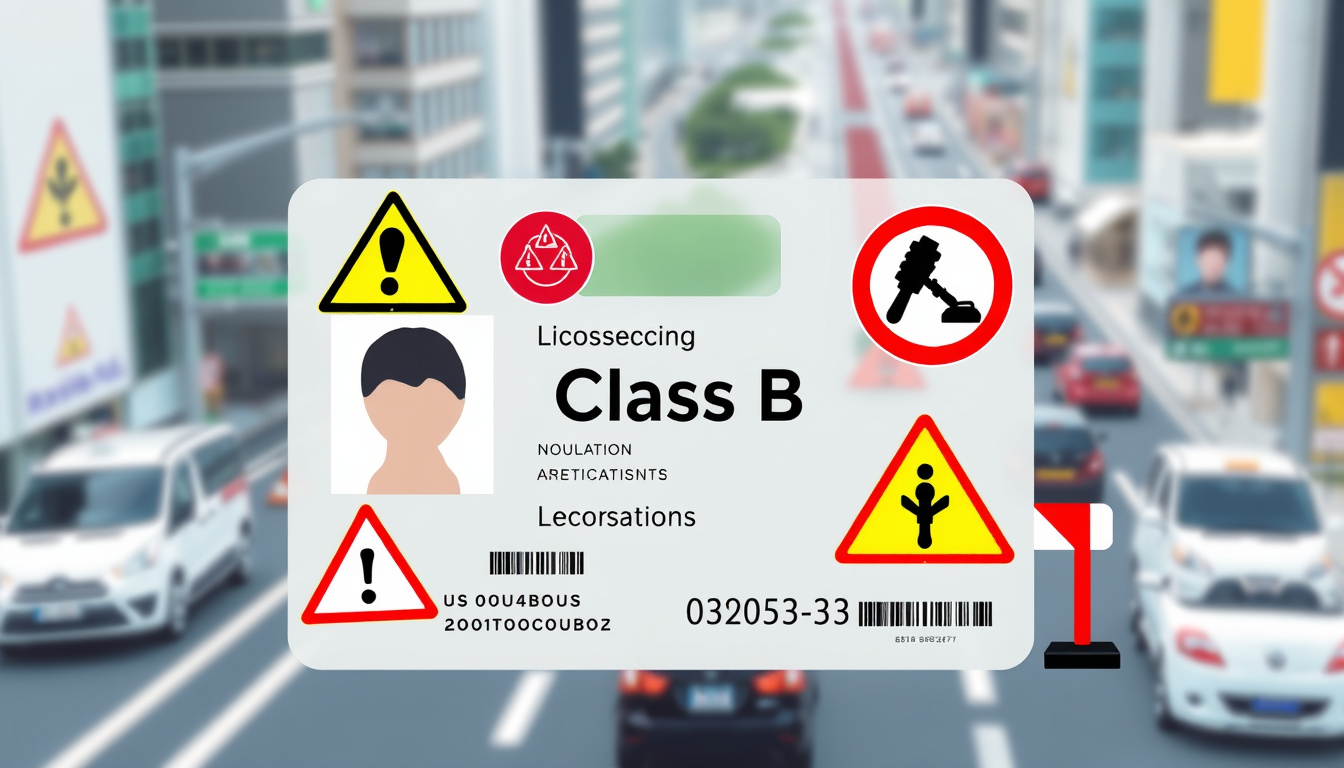
Regulations and Restrictions Associated with Class B Licenses
When exploring the question, ‘What is a Class B liquor license in Louisiana?’ it is essential to understand the specific regulations and restrictions that accompany this licensing option. In Louisiana, a Class B liquor license allows establishments to sell alcoholic beverages for on-premises consumption, typically applicable to bars, restaurants, and similar venues. However, operators must adhere to various state and local guidelines, including limitations on operating hours, zoning laws, and sanitation standards to ensure public safety and compliance with alcohol distribution laws. License holders must also navigate the complex process of application and renewal, which can include background checks and fees. Additionally, understanding the nuances of these restrictions is crucial for maintaining the license and avoiding potential fines or disruptions to business operations.
Renewal and Compliance Obligations for Class B License Holders
Holding a Class B liquor license in Louisiana comes with specific renewal and compliance obligations designed to ensure responsible alcohol distribution and management. A Class B liquor license allows establishments such as bars, restaurants, and lounges to sell alcoholic beverages for on-premise consumption. To maintain this license, operators must adhere to local and state regulations, which include annual renewal submissions, payment of applicable fees, and proof of compliance with health and safety standards. Additionally, license holders are required to attend responsible vendor training courses to educate themselves and their staff about alcohol laws, serving techniques, and the importance of preventing underage drinking. Understanding these obligations is crucial for anyone asking, ‘What is a Class B liquor license in Louisiana?’ as fulfilling these requirements not only ensures legal compliance but also promotes a safe drinking environment for patrons.
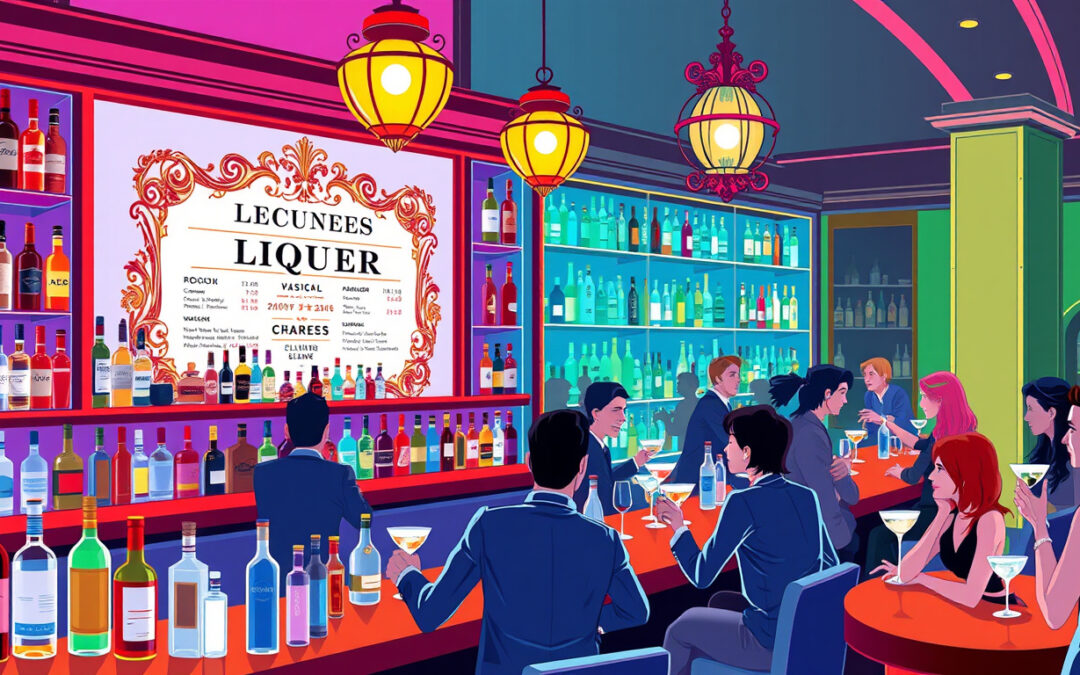
BLOG
Liquor licenses are essential for businesses that wish to sell alcoholic beverages legally, but the cost of obtaining one can vary dramatically from state to state. If you’re curious about what state has the most expensive liquor license, you’re in the right place. This article will delve into the intricacies of liquor licenses, explore the factors that affect their costs, provide an overview of prices across different states, and identify which state holds the record for the most expensive liquor license. We will also discuss the implications of these high fees on businesses and the broader trends shaping the liquor licensing landscape today.
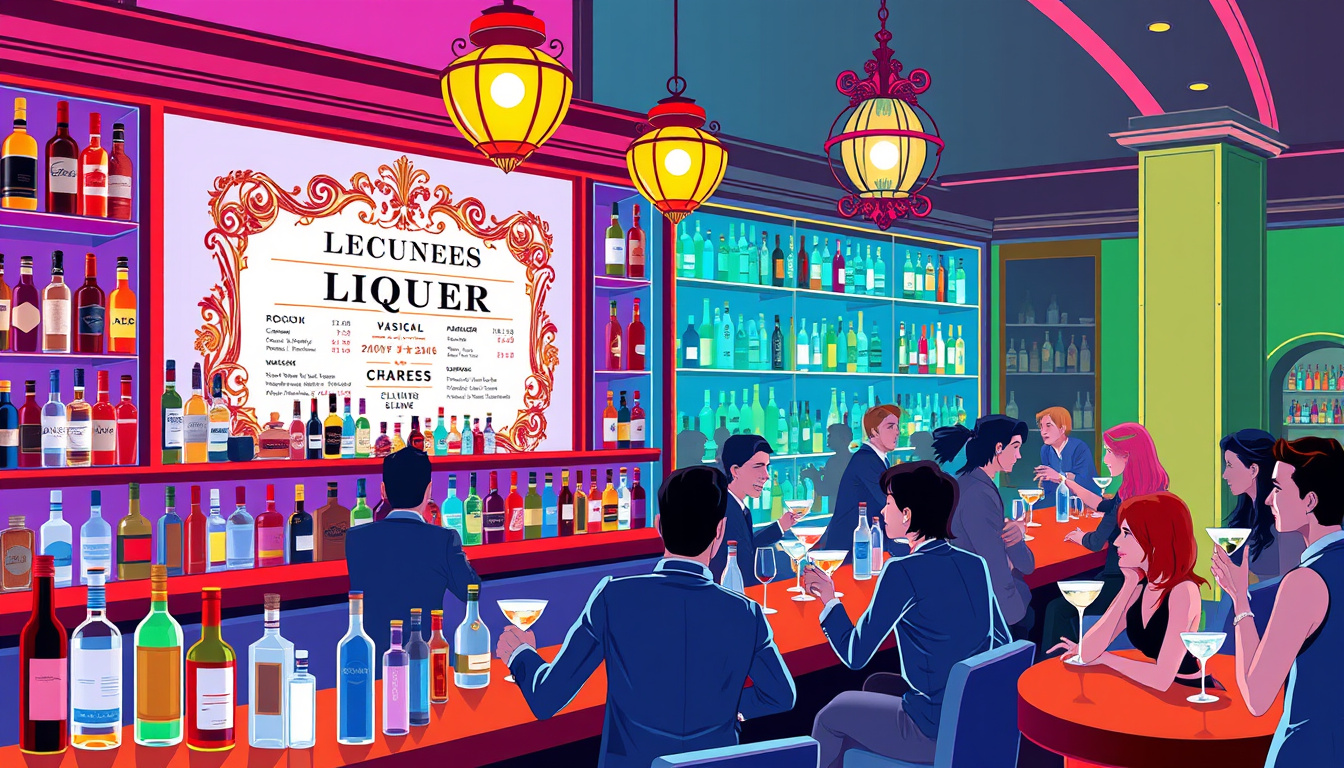
Key Takeaways
- Liquor license costs vary significantly between states due to local regulations and demand.
- California has the most expensive liquor license in the United States, reflecting the state’s market size.
- Factors such as population density, economic conditions, and local laws influence the overall cost of liquor licenses.
- High liquor license fees can create barriers for new businesses and impact the hospitality industry’s growth.
- Future trends may see changes in liquor licensing regulations as states adapt to new market dynamics.
Introduction to Liquor Licenses
When it comes to starting a business in the alcoholic beverage industry, one of the initial steps is obtaining a liquor license. Liquor licenses are regulatory permits issued by governments that allow individuals or businesses to sell alcoholic beverages. This process can vary significantly from state to state, both in terms of the requirements and cost. One question that often arises is, ‘What state has the most expensive liquor license?’ Understanding the nuances of liquor licensing costs is crucial for entrepreneurs looking to enter this lucrative market. States like California and New York are often at the top of the list due to their high demand for liquor licenses in bustling urban environments, with prices reaching into the hundreds of thousands of dollars. Factors such as local regulations, population density, and economic conditions influence these costs, making it essential for aspiring business owners to thoroughly research and prepare for potential expenses associated with acquiring a liquor license.
Factors Affecting Liquor License Costs
When it comes to starting a bar or selling alcohol, understanding the costs associated with obtaining a liquor license is crucial. Many aspiring venue owners often ask, ‘What state has the most expensive liquor license?’ The answer can vary widely depending on multiple factors, including local laws, population size, and state taxes. For instance, states like California and New York are known for their steep licensing fees, often exceeding thousands of dollars. These costs can be influenced by the type of license required, such as whether it is for a retail store or a tavern. Additionally, areas with higher demand for alcohol sales typically see increased fees to manage the competitive market. Other key factors include the complexity of the application process, the duration of the license, and any associated regulatory fees. By understanding these factors, prospective business owners can make informed decisions that align with their budget and business goals.
‘In the business world, the rearview mirror is always clearer than the windshield.’ – Warren Buffett
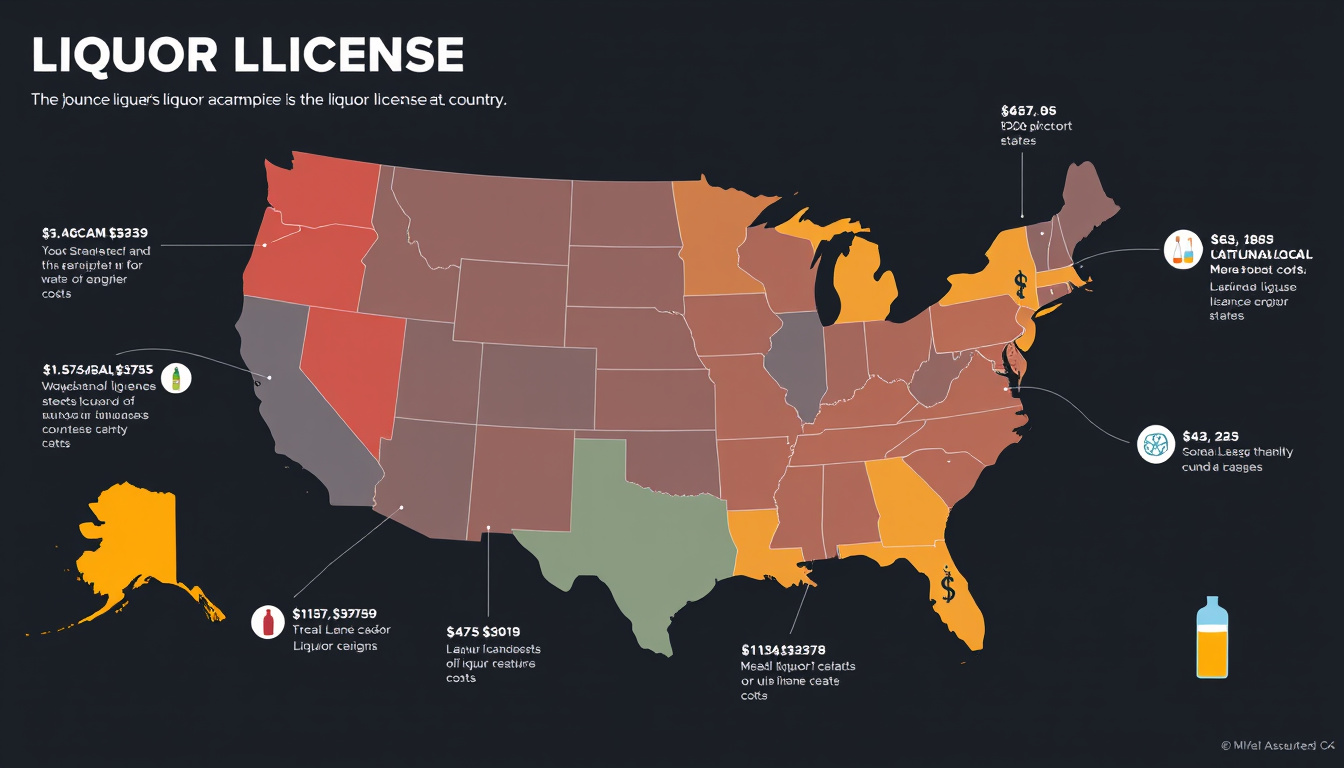
Overview of Liquor License Costs by State
When considering the costs associated with obtaining a liquor license, it’s essential to recognize the variations that exist from state to state. Each state in the U.S. has its own regulations, fees, and associated costs, which can significantly impact the price of a liquor license. This brings us to the intriguing question: what state has the most expensive liquor license? Generally, California, with its dynamic beverage market, tops the list for requiring some of the highest fees for liquor licenses. Various factors contribute to these costs, including the type of license (for example, a general retail license versus a special event license), local government regulations, demand, and even market saturation. In contrast, states like Ohio and Pennsylvania offer more affordable licensing options. When exploring the landscape of liquor licensing, business owners should not only consider the upfront costs but also ongoing compliance fees, renewal charges, and potential legal expenses associated with maintaining their licenses.
State with the Most Expensive Liquor License
When exploring the landscape of liquor licensing in the United States, one can’t help but wonder, ‘What state has the most expensive liquor license?’ The answer varies across different states due to differing laws, regulations, and demand for alcohol sales. As of 2023, California is known for having some of the highest costs associated with obtaining a liquor license. In major cities like Los Angeles and San Francisco, fees can often exceed $15,000 or even reach upwards of $50,000 depending on the type and size of the establishment. This steep cost can be attributed to the high competition in urban areas and the burgeoning nightlife scene. In contrast, states like Wyoming or Montana have much lower fees, sometimes as affordable as a few hundred dollars. This stark contrast highlights how local economies and regulatory frameworks shape the liquor license landscape, prompting many entrepreneurs to conduct thorough research before opening their establishments.

Impacts of High Liquor License Fees on Businesses
High liquor license fees can significantly impact businesses in the hospitality sector, with consequences that extend beyond initial costs. Many entrepreneurs wonder, ‘What state has the most expensive liquor license?’ The answer is often surprising, as states such as California and New York lead the pack in high fees, sometimes reaching up to $100,000 or more, depending on the type of establishment. These prohibitive costs can create barriers for new businesses, limiting market entry and innovation. For existing businesses, the financial burden of high liquor license fees often results in increased menu prices or reduced staffing, which can ultimately diminish customer experience. Furthermore, small bars and restaurants might struggle to compete against larger corporations that can absorb these expenses more easily, leading to a homogenization of the market. As such, understanding the diverse impacts of liquor license costs is crucial for anyone considering entering the lively but challenging world of alcohol service.
Conclusion and Future Trends in Liquor Licensing
In conclusion, the landscape of liquor licensing continues to evolve, particularly as public sentiment shifts regarding alcohol consumption and regulation. Currently, California stands out as the state with the most expensive liquor license, with costs reaching upwards of $15,000 or more depending on the type and location of the license. As we look to the future, we anticipate trends such as more states reviewing their liquor licensing laws to accommodate the growing craft beverage movement, as well as an increasing push towards online applications to streamline the process for new businesses. Entrepreneurs interested in entering the liquor industry should stay informed about these changes, as they could significantly impact costs and operational feasibility. Understanding the expenses involved in obtaining a liquor license in their respective states can help them plan effectively and navigate the complexities of this highly regulated market.














 vendors must demonstrate a commitment to responsible practices, which involves adopting rigorous standards in areas such as product safety, ethical sourcing, and environmental sustainability. This typically requires
vendors must demonstrate a commitment to responsible practices, which involves adopting rigorous standards in areas such as product safety, ethical sourcing, and environmental sustainability. This typically requires 









